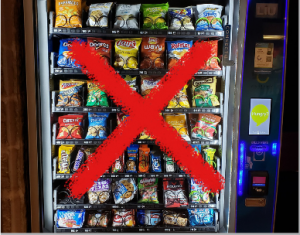By Ludvig Brisby Jeppsson
Staff Writer
Exercise or rest? Study or party? Fast food or home-cooked? You are faced with the same dilemma several times a day. Do something that feels good for now or do something that you will profit from in the future. Invest or spend. Saw or harvest.
If you were a homo economicus, the super rational person in economic theory who is assumed to take all choices, you would just calculate the net present value of the two choices and choose the greater.
But there are a couple of problems with this approach. Apart from the challenge of making good predictions about future payoffs, which is always a problem in investment strategy, you have the question about which variables you should take into account and how you should value them.
How much is having fun and social life worth compared to higher grades? How much is health worth compared to a better economical situation? The well-being of a human is multidimensional and not just her economic situation, like in a company.
Viewing every decision alone will open up for supopitimizing. One decision might make one area of your life better, but will cannibalize on another. In order to maximize physical performance, it might be rational to exercise three hours a day. In order to maximize GPA, it might be best to study into late night. But in order to stay motivated and healthy over time, it might not be the best thing to do. Without a holistic view, making all the right choices might not be the right choice at all.
Lastly, and maybe the most important part of the problem, is that humans don’t make active decisions at every situation faced. It is time and energy consuming for the brain to go through the process. For example, when we buy something, we usually buy the brand we bought the last time. We develop a habit.
So maybe there is a pattern to our choices. And that is why the famous marshmallow test conducted at Stanford is so extremely interesting. In the test, young children had to choose between one marshmallow right now, or wait and get two. The researchers found that the kids who could resist the present temptation would become more “successful” in life, becoming richer, healthier and receive higher grades. If one were to believe this study, the ability to postpone your reward explains why some people achieve more than others.
Through early human history, the brain reward and pleasure system is a quality evolution that made us develop to survive, such as when gathering food. In the later part of history, the long term planning ability has probably been extremely useful in developing wealth and societies.
While it is not hard to understand why people with total lack of impulse control and people who easily get addicted can experience hard times planning the future, it is intriguing to consider what the optimal habit is.
Is the function of level of success and ability to postpone pleasure linear or not? Is it always better to postpone your reward or is there a sweet spot, where the occasional easy reward will make you perform better?
Even if there wouldn’t be a sweet spot and it always pays off to invest, the problem is not quite solved. Since the relationship between economical wealth and happiness is suggested to be non-linear, you really first have to make sure what success really means to you, before you can decide when to harvest.





Be First to Comment